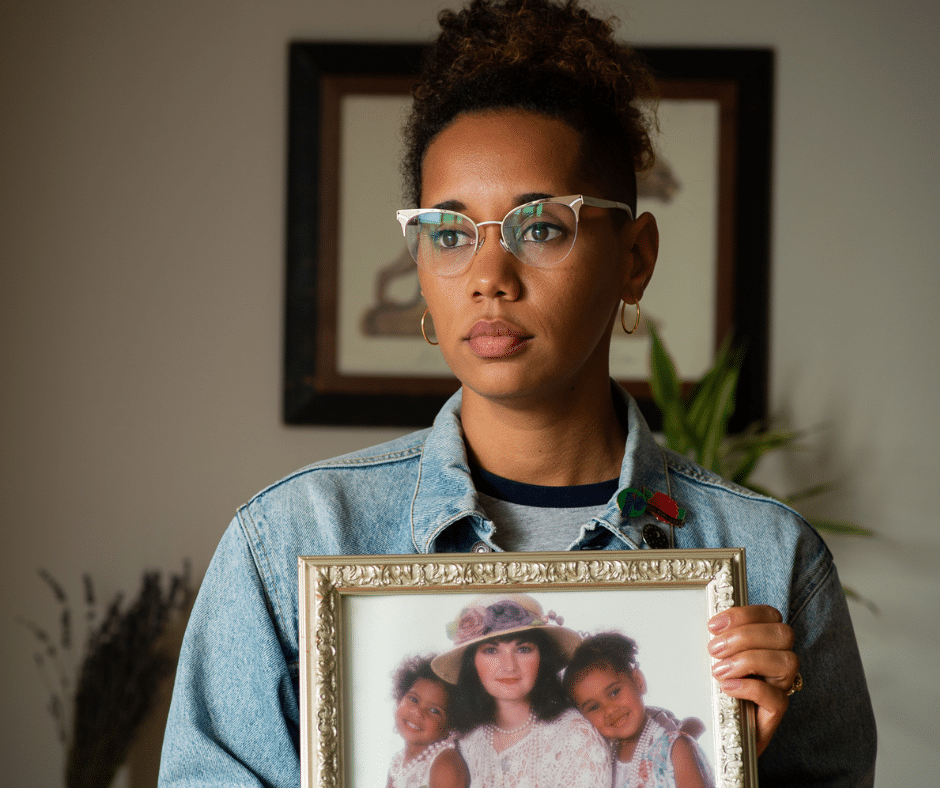PAUSE: Producing Safe, Culturally-Specific, Expert-Informed Grief and End-of-Life Resources Across America
How three Black-led grief organizations are building resources for communities of color through education and conversations.
By Nora Biette-Timmons[
In the summer of 2020, after the police killing of George Floyd sparked nationwide protests over entrenched racism and inequality, Alica Forneret paused to make a decision. Her career was already focused in grief spaces; after her mother’s sudden death in 2016, Forneret faced further difficulty when she returned to work and received little in the way of institutional support, something she set out to change through education, conversations, and community building.
 But following the massive outcry over Floyd’s unjust, public death, she pivoted her work to focus on typically underserved demographics, and founded PAUSE with the mission of creating “spaces that produce safe, culturally-specific, and expert-informed grief and end of life resources serving Communities of Color.”
But following the massive outcry over Floyd’s unjust, public death, she pivoted her work to focus on typically underserved demographics, and founded PAUSE with the mission of creating “spaces that produce safe, culturally-specific, and expert-informed grief and end of life resources serving Communities of Color.”
Black and other historically-marginalized or excluded communities in the U.S. face additional burdens when it comes to grief and the grieving process. “For many people of color, the fear, exhaustion and constant grief that all come from regularly dealing with various forms of discrimination are compounded when additional trauma piles on,” Forneret wrote in a HuffPost article about a year after launching PAUSE.
On top of that, Black folks disproportionately face experiences that cause grief, especially at a younger age: Compared to whites, Black Americans are 20 percent more likely than whites to lose a sibling by age 10; 50 percent more likely to lose a sibling by age 60; and three times more likely to lose a child before 70.
It’s these facts, and the further difficult realities that individuals face after losing a loved one, that Forneret wanted to respond to.
She told Evermore that her organization is exploring the tough questions: “Why [are] end-of-life-related outcomes and experiences different for people of color — and more importantly, how do we enhance that experience by centering identity?”
When drilling down into specifics, she said that PAUSE is seeking answers to queries like, “Why isn’t hospice as utilized by certain communities? Why do terms like palliative care not resonate with, alienate, or turn off certain communities? Why aren’t folks in healthcare settings currently making more culturally-specific referrals? Why are certain professions nervous about referring to doulas, healers, or creatives in the deathcare space?”
“These aren’t new questions, issues, or challenges,” she noted, but said that PAUSE is “hoping to achieve [new] ways of tackling them with different voices and perspectives at the forefront.” The end result, the changes, “come after asking those questions—it’s our hope to create new types of containers to not only have the discussions, but to also create sustained collaborative projects to address the answers.”
So far, PAUSE has developed an incubator of sorts for grief workers to pool their brain trusts and expand their reach. The Starlight Business Development Residency centers “people who are already doing the work in the community. We don’t want to recreate the wheel or take up space where others are already making impact,” Forneret told Evermore. The residency seeks to meet the needs of people of color who work in the deathcare field, who reported that most of the trainings and resources they had access to “were majority white-centered or highlighting western practices that didn’t fit with that didn’t fit with their way of thinking about the ways they wanted to run their business or serve their clients.”
PAUSE’s initial Starlight Residency welcomed 12 end-of-life entrepreneurs for six months; its second iteration, which launched in February, is getting even deeper: For 12 months, the residency will bring together six Los Angeles-based deathcare workers—from a variety of backgrounds, including the arts, coaching, and healing work—to connect, strengthen their skills, and expand the ever-growing community of BIPOC-focused grief facilitators and counselors.
That, she said, is her ultimate goal in her work. “My favorite person to talk to at a conference or a workshop is the person who says, ‘I had no idea I could find a Black, queer, LA-based death doula to refer my client to—can you make an introduction?’” Recognizing the intersectionality of the bereavement process is crucial, she said. “The most incredible impact we can make will come from being open to expanding our networks and acknowledging who can serve our clients best even if it’s not us.”
 Dr. Julie Shaw, the founder of Hello I’m Grieving, participated in the inaugural Starlight Residency, and cites Forneret’s work as a guiding light and an inspiration: It “played a pivotal role in both my personal and professional growth,” she told Evermore. Each partner in PAUSE’s work “brings unique expertise to the table, making them invaluable resources within” the death and grief community.
Dr. Julie Shaw, the founder of Hello I’m Grieving, participated in the inaugural Starlight Residency, and cites Forneret’s work as a guiding light and an inspiration: It “played a pivotal role in both my personal and professional growth,” she told Evermore. Each partner in PAUSE’s work “brings unique expertise to the table, making them invaluable resources within” the death and grief community.
“A crucial form of support” for this type of work “lies in fostering partnerships,” she said, highlighting the importance of PAUSE bringing people together. “This involves not only collaborating with fellow leaders in the grief space but also engaging with professionals from diverse industries who can contribute to the elevation and transformation of death and grief conversations.”
Shaw’s own journey in this space began when her sister died of Lupus in February 2020 but, she told Evermore, “It was only after months of introspection that I finally acknowledged my own grieving process. Taking a moment to ‘say hello’ to my grief, I wanted to extend that acknowledgment to others who may be experiencing similar pain.” To do so, she made T-shirts with the simple statement, which “became conversation starters wherever I went,” Shaw said, “prompting individuals to share their own stories of loss.”
These connections prompted her to train as a grief counselor, and now she works with companies to “help cultivate empathetic leadership, provide resources for supporting grieving employees returning to work, and offer guidance for grievers navigating their professional and personal lives after loss.”
In her practice, Shaw rejects “the idea that discussions of grief must always be somber,” and “draws from my background in athletics to offer motivation and coaching for individuals to navigate their grief journey while striving for personal growth.” As a gay Black and Filipino woman, Shaw told Evermore that she recognizes “the significance of…the intersectionality of grief with our identities” and how these inform “the way we experience and express grief, as well as how it’s perceived by others.”
 The perception—or lack thereof—of grief is a subject that’s close to the heart of Nefertiti Moor, the founder of Dearly Bereaved. “Within the Black community…our grief is often swept under the rug and meant to be forgotten,” she told Evermore. “Most jobs don’t give bereavement leave, so a lot of us are ‘sucking it up’ and proceeding with life as if we are okay and we usually are not.”
The perception—or lack thereof—of grief is a subject that’s close to the heart of Nefertiti Moor, the founder of Dearly Bereaved. “Within the Black community…our grief is often swept under the rug and meant to be forgotten,” she told Evermore. “Most jobs don’t give bereavement leave, so a lot of us are ‘sucking it up’ and proceeding with life as if we are okay and we usually are not.”
Her work focuses primarily on “alternative deathcare” for the Black community, which she describes as “a more natural and aligned approach to what our ancestors did for our loved ones” that is rooted in “connection, love, and comfortability for the dying.” A large portion of this requires bridging the gap between many “alternative” practices that are often “whitewashed”; Moor makes sure she is in “more deathcare spaces” to offer outreach to grieving people who may not “feel very comfortable connecting with someone who doesn’t look like them or cannot connect culturally.”
Beyond her services like living funeral planning and grief meditation, Moor also offers guidance about navigating home funerals and green burials. These tools not only allow loved ones to grieve in spaces that are comfortable and familiar, they can cut down on the often-shocking expense of dying in America.
Like many burdens in America, the impact of grieving disproportionately affects communities of color—and, as Forneret expressed in her writing, these traumas are compounded by other, existing, ongoing injustices. That’s what makes work like her’s, Shaw’s, and Moor’s so important: It speaks to the specific needs of these communities, which are often pain points, but as Shaw told Evermore, can be infused “with empathy and even moments of fun” as the bereaved remember their late loved ones.
Join Our Community!
